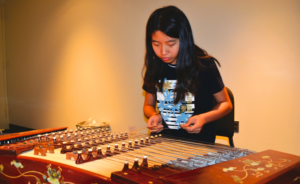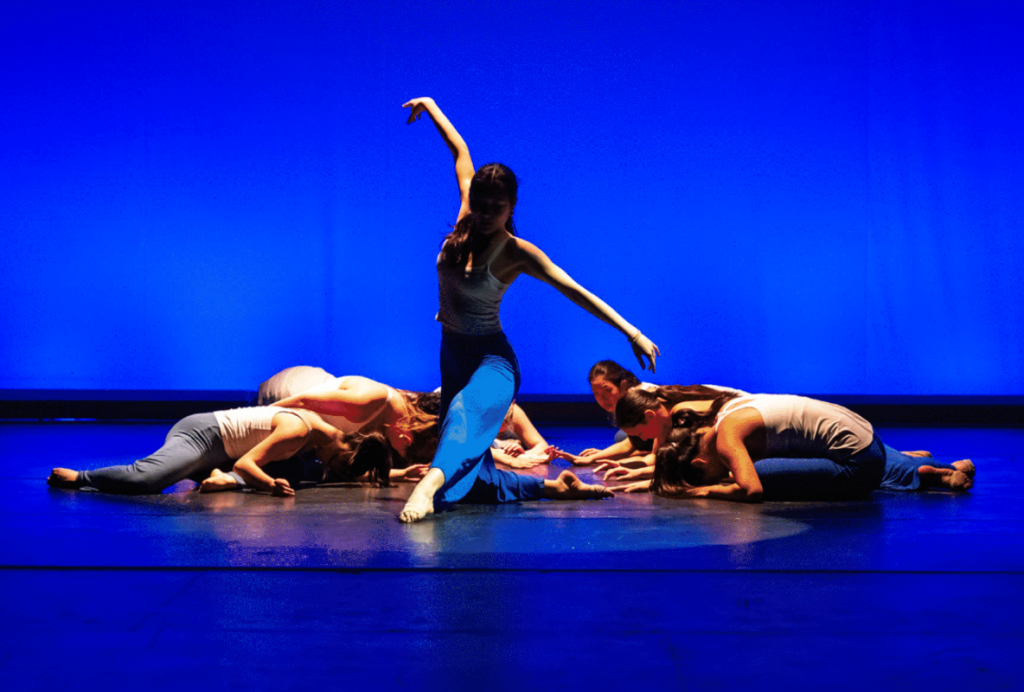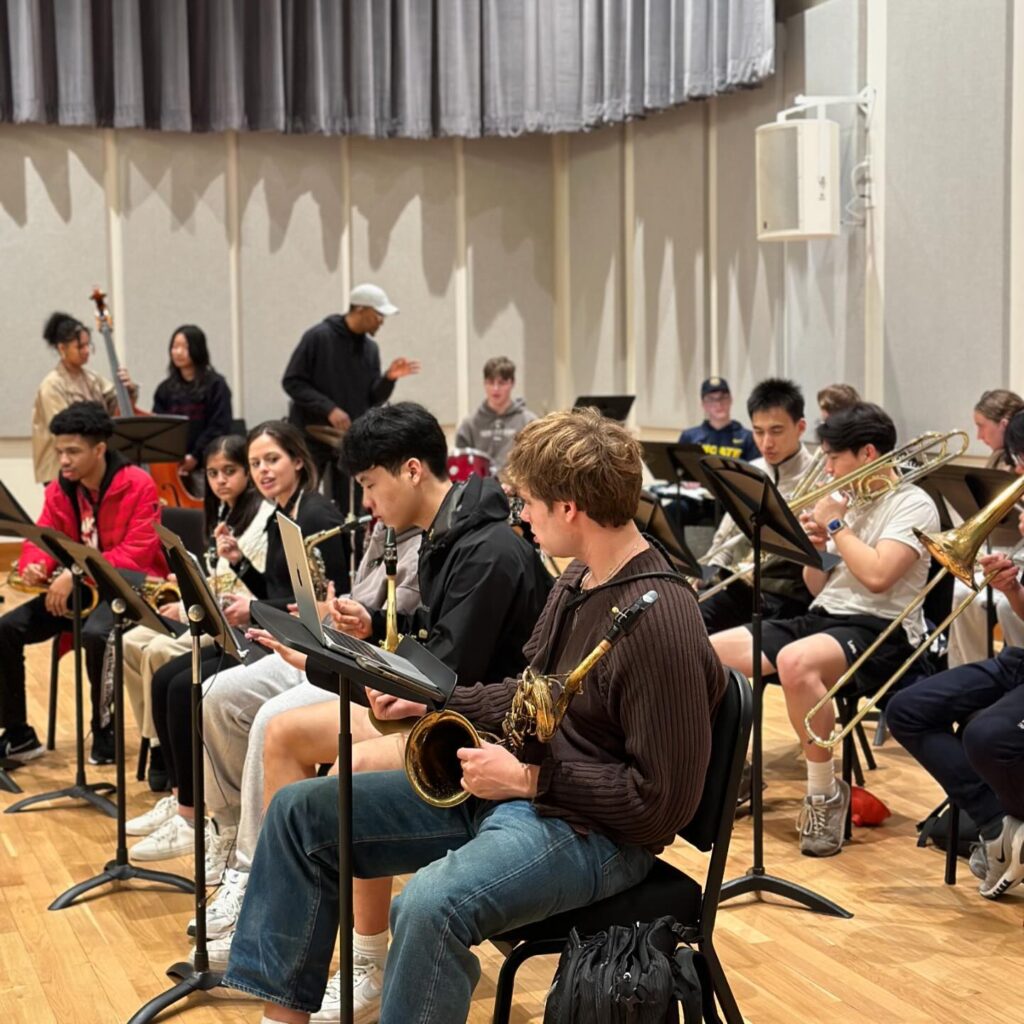Here at Choate, there are many students who go unrecognized for their skills; this ranges in every aspect of school life. It is easy to forget the individuals who have honed their art on percussive instruments, keeping time and the measure of every beat. It is easy to forget the diverse range of music that can be heard through other, more esoteric instruments. One of these percussive instrumentalists is Edward Rakphongphairoj ’17.
Rakphongphairoj has been a part of the orchestra since his junior year at Choate. He can be spotted in the back in his tuxedo and with his triangle. He said, “The triangle was an opportunity that presented itself to me. I started picking it up when Sam Markowitz introduced it to me. Although I never predicted that I would be playing this instrument, the more time I spend practicing, the more I have realized the intricacy of the metallic structure.” He added, “Contrary to what many people believe, the triangle is like every other instrument when you are learning it: it’s hard to play. But because I know how to read music, and have had some experience with music ensembles, the learning curve was not very high.”
The triangle is often a forgotten instrument in the orchestra. Some fail to recognize the qualities that make it the very opposite of trivial. Rakphongphairoj joked, “Sometimes I even self-ridicule for playing the triangle in an orchestra with so many talented people. Some of my friends in the orchestra have told me they don’t know why I am there.”
However, he said, although the impact may be small, the audience does hear the occasional ring of the metal bars. He stated, “If anyone listens to the orchestra, they will hear the light sound resonating from somewhere in the back: That’s probably me on the triangle.” This is true of even the most famous orchestral recordings; once you know the sound, you will recognize it in almost every performance. He said, “The triangle produces a very high pitched ‘ding’ ringing sound. The tune is not produced from some instrument hidden in the closet, but rather a musician beating the triangular metal with a baton.” He shared a story, “After the orchestra’s performance at Carnegie Hall, an old lady personally came up to me and asked for my signature and a drawing of a triangle.”
On the other end of the spectrum is Heidi Lei ’20, a freshman who hails from Beijing. She has showcased her artistic expression in a school meeting, after which she received a standing ovation from both the faculty and students. Lei’s instrument is known as the yangqin, which is the hammered dulcimer, which translates to “acclaimed instrument.” She said, “When I was little I started to play the piano, but after a while, I wanted to play something different, something that would connect back to traditions in China. I chose the yangqin because of the difficulty and the uniqueness. It was one of the instruments that immediately caught my eye.”
As Lei stepped on stage, it was evident that the instrument was different from others that we are accustomed to. The appearance is intricate and delicate; however, there are many layers that lie beneath the wooden exterior of the yangqin. Lei said, “There is a level of difficulty with every instrument, but for me the yangqin is a mental challenge that I have to face every time I play. There are so many components to it, and it is so easy to mess up. The strings are positioned very closely to one another, so you have to be very accurate when using the hammer.” Unlike the flawless sounds that come from the Chinese dulcimer, trying to play it is anything but smooth. Lei added, “Whenever I play the yangqin, it is a meditative time in which all I can do is focus on the instrument and the notes at hand.”
Overall, Lei stated, “Even when I struggle I enjoy it. The yangqin is actually a very beautiful instrument; the sound is very clear and bright. It is very exciting to play because of the fast tempo of Chinese traditional music.” Anticipate Rakphongpairoj and Lei at future Choate events, orchestral performances, and recitals, honing their craft on their respective instruments.




